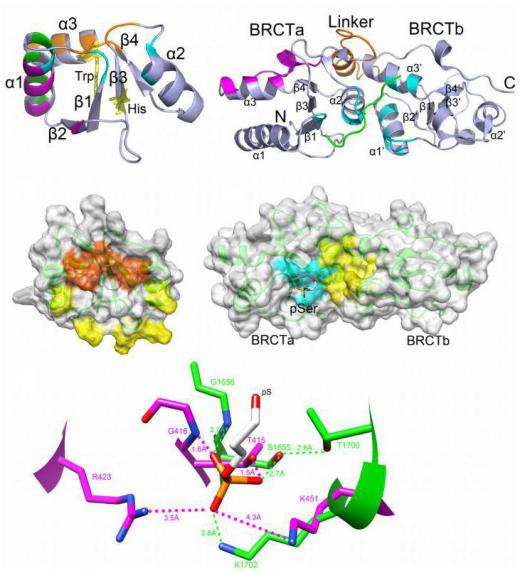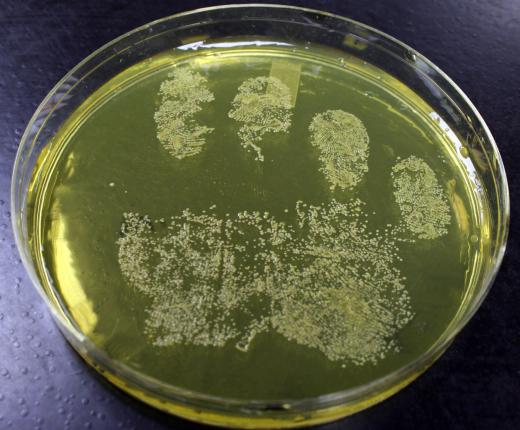What is a Bacterial Protein?
 Mary McMahon
Mary McMahon
A bacterial protein is a protein which is either part of the structure of a bacterium, or produced by a bacterium as part of its life cycle. Proteins are an important part of all living organisms, and bacteria are no exception. Thanks to the fact that many bacteria are easy to culture in the laboratory, a great deal of research on bacterial proteins has been performed with the goal of learning more about specific proteins and their functions. Understanding bacterial proteins is important both because bacteria play a very active role in human health, and because the information can be extrapolated to gather more data about the proteins associated with larger organisms, including humans.
Proteins are lengthy chains of amino acids which are folded back upon themselves. The nature of a protein is determined both by the amino acid chain and by the way in which the protein is folded. Proteins are encoded in the genes, with certain proteins being expressed while an organism develops, with others are produced by an organism with the goal of accomplishing specific tasks. The genetic code of an organism holds the blueprints for numerous proteins.

In addition to being a unique structure, a bacterial protein also has the ability to bind with other proteins. Protein binding involves the formation of very strong links between two different proteins. Once proteins bind, they can trigger a reaction which may vary from an immune system response to an infection to the onset of a disease. Over time, many bacteria have evolved to produce proteins which target particular locations on human and animal cells.

Bacterial proteins are of interest to humans for a number of reasons. Understanding which proteins are involved in the structure of particular bacteria can help researchers develop medications which identify and target a particular bacterial protein, allowing the researchers to create antibacterial drugs which target specific organisms. Understanding individual proteins can also allow researchers to monitor mutations and to keep track of the ways in which these mutations occurred, and how they can be addressed.

Some bacteria produce proteins which have a deleterious effect on the human body. A bacterial protein can be toxic, causing illness or death in an organism which has been infected by the bacteria, and bacterial proteins can also bind with specific proteins in the body to cause a variety of symptoms. Researchers can spend years identifying all of the proteins associated with a single type of bacterium, and this process can be complicated by rapid mutations, as seen in the case of the wily Staphylococcus bacterium.
AS FEATURED ON:
AS FEATURED ON:













Discussion Comments
I am wondering how many actual bacterial proteins have been identified?
Post your comments